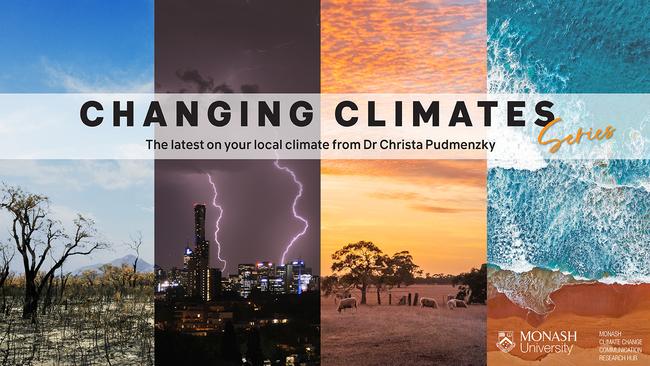Feeling the bite of climate change and mosquito-borne diseases
Read on for your chance to win a $500 eftpos gift card! Host of Ipswich's Changing Climates series, Dr Christa Pudmenzky, explains the rise in deadly mosquito-borne diseases.

Hyperlocal
Don't miss out on the headlines from Hyperlocal. Followed categories will be added to My News.
Read this article and complete a short survey for your chance to win a $500 eftpos gift card.
Excessive greenhouse gas emissions from human activities continue to warm Australia's climate at an unprecedented rate.
We can see evidence of this warming in Ipswich, where the hottest autumn night is now 22.8C – an increase of around 1.1C since the early 1970s.

Warmer temperatures can contribute to an increase in rainfall because warmer air holds more moisture.
As we've seen with the recent, catastrophic rainfall on the east coast, heavy rain can lead to flooding, and these warm, wet environments create the perfect breeding ground for disease-carrying mosquitoes.
Infectious diseases expert and director of the Oceania Hub at the World Mosquito Program, professor Cameron Simmons, explains how different climate conditions increase the risk of mosquito-borne diseases:

In Australia, mosquito-borne diseases include dengue fever, Ross River virus, Murray Valley virus, and more recently, Japanese encephalitis.
Following the warm and wet La Niña conditions experienced over the last few months, Australia has recorded 34 cases of Japanese encephalitis so far, with four in Queensland.
This virus generally causes mild flu-like symptoms, but around one per cent of cases can lead to long-term side effects or even death.
Luckily, unlike COVID-19, Japanese encephalitis cannot be transmitted directly from person to person – you can only become sick if you're bitten by an infected mosquito.
In the short-term, further spread of these diseases will depend on weather conditions, mosquito movements and their interactions with host animals including pigs and waterbirds.
But as temperatures rise over time, scientists predict disease-transmitting mosquitoes will spread out from the tropics to higher latitudes and altitudes.
In fact, some mosquito species that carry dangerous viruses have already expanded into more temperate regions.
Additionally, increased urbanisation creates a higher chance of disease transmission when cities encroach on mosquito habitats in bushland or wetland areas.
With hotter, longer summers and more extreme weather, the pesky mozzie season could extend beyond its normal range.
To help stay safe, professor Simmons explains "there are simple things you can do to protect yourself and your family."
The best way to prevent mosquito-borne diseases is to get vaccinated where possible and follow expert advice to protect yourself from being bitten.

Have you read this article? Click here to enter the draw for a $500 EFTPOS gift card! One gift card winner will be drawn for every 100 entries. Read the terms and conditions here.
Want more information on how your climate is changing? Check out the last article in this series.
Dr Christa Pudmenzky is a climate scientist at the University of Southern Queensland.
This column is part of a collaboration between Monash University and News Corp to deliver hyperlocal weather and climate information.


